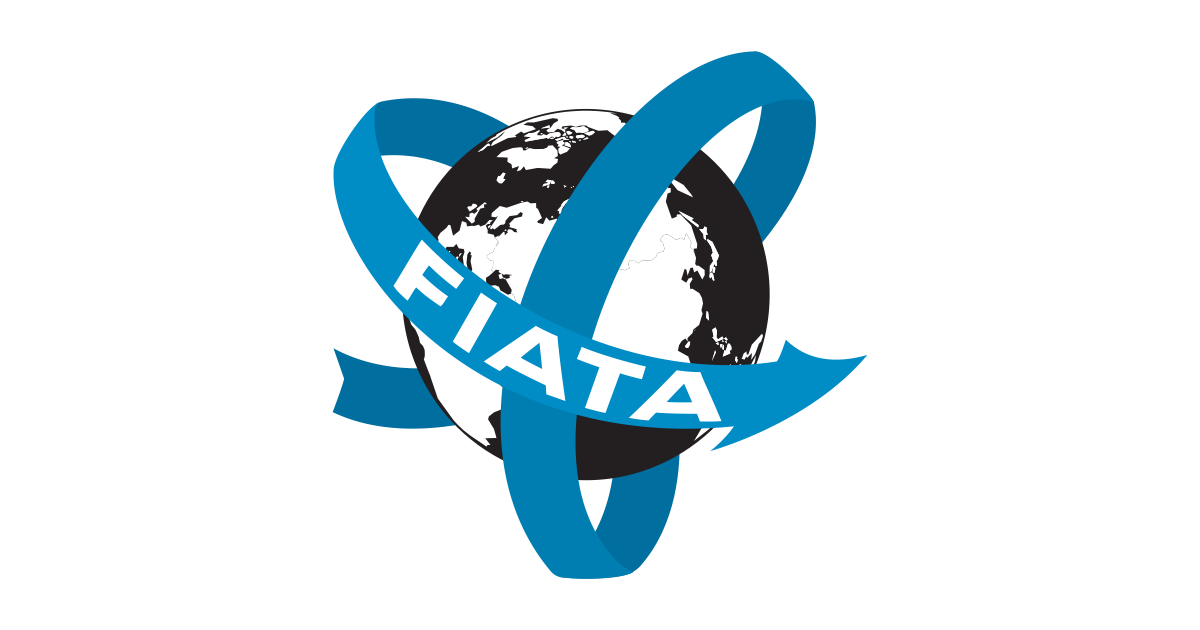
FIATA’s strategic engagements, industry milestones, and global collaborations
GENEVA : The IATA-FIATA Consultative Council Elects New Chair
The International Air Transport Association (IATA) and the International Federation of Freight Forwarders Associations (FIATA) are pleased to announce the election of the new Chair of the IATA-FIATA Consultative Council (IFCC) on 17 October 2024. The newly elected Chair, Mr Richard Gluck, will be the first Chair originating from the freight forwarder constituency, marking a landmark moment for the IFCC and demonstrating the positive developments in the collaboration between airlines and forwarders, and IATA and FIATA as their respective representative organisations.
Mr Gluck is a transportation attorney in the Washington, DC office of Foster Garvey, with more than forty years of experience in all modes of transport. For more than twenty-five years, Mr Gluck was general counsel to the Transportation Intermediaries Association in the United States. Mr. Gluck was Chair of the FIATA Advisory Body Legal Matters (ABLM) for ten years and a U.S. delegate to FIATA’s Working Group on Sea Transport. He was elected as a Vice President of FIATA in 2019. During his tenure as ABLM Chair Mr. Gluck helped to negotiate the IATA-FIATA Cooperation Agreement creating the IATA-FIATA Air Cargo Program (IFACP), and participated as an advisor in the meetings of the governing board of that program. After the IFACP was terminated in 2019 he was appointed by FIATA as a forwarder representative of the IFCC.
Mr Gluck is committed to encouraging collaboration between airlines and forwarders and finding mutually beneficial solutions, noting the many common interests between airlines as service providers and forwarders as users of air transportation services.
In line with Resolution 801c, para. 3.2, Mr Gluck is elected for a two-year term. He will therefore step down from his previous role as an IFCC forwarder voting representative to assume his new Chair position. His predecessor, Mr Stefan Amann, will act in a consultative Vice-Chair capacity to support Mr Gluck, however, will resume his IFCC voting rights. This arrangement was agreed within the IFCC as an exceptional arrangement with a view to continuing to improve collaboration and foster efficient decision-marking processes, and does not necessarily create a precedent for future elections.
IATA and FIATA take this opportunity to congratulate Mr Gluck in his new position, which will be instrumental as both organisations continue their work towards a modernised global air cargo programme that reflects the new commercial realities in the air cargo context, noting the significant evolutions in supply chains today.
FIATA Highlights Digitalisation Milestones at UNECE TIR Administrative Committee 84th Session
FIATA participated in the 84th session of the United Nations Economic Commission for Europe (UNECE) TIR Administrative Committee last month, highlighting the vital role of digitalisation in fostering efficient, sustainable, and resilient supply chains. Dr Stéphane Graber, FIATA’s Director General, underscored the importance of adopting digital transport documentation as an essential step in modernising logistics and facilitating global trade.
As the global voice for freight forwarders across all modes of transport, FIATA remains at the forefront of advancing digital solutions for the industry. One notable achievement is the digital FIATA Multimodal Bill of Lading (eFBL)—the only multimodal, negotiable transport document that also serves as a title of goods. The eFBL complies with the United Nations Centre for Trade Facilitation and Electronic Business (UN/CEFACT) reference data model and is endorsed by the United Nations Conference on Trade and Development (UNCTAD) and the International Chamber of Commerce (ICC), with mapping to World Customs Organization (WCO) data standards. Freight forwarders globally rely on the FBL, in both digital and paper formats, to ensure seamless door-to-door goods movement across all transport modes, while adhering strictly to its terms and conditions.
Designed for interoperability, the eFBL complements other transport documents, such as those issued by carriers, by sharing common data points. This approach reduces duplication and inconsistencies, enhances authenticity, and strengthens data security against fraud. However, advancing supply chain digitalisation requires addressing two critical challenges:
Transferability: Ensuring the legal recognition of digital documents, like the FIATA Multimodal BL, through initiatives such as the United Nations Commission on International Trade Law (UNCITRAL) and the ratification of the Model Law on Electronic Transferable Records (MLETR) by states.
Interoperability: Facilitating data exchange and system interconnectivity among stakeholders, a key focus of the UNECE-FIATA collaboration.
Through its partnership with UNECE, FIATA continues to champion the digitalisation of core freight forwarding, customs, and inland transport documents, paving the way for enhanced efficiency and resilience in global logistics.
Looking ahead, the eFBL and UNECE-FIATA collaboration will remain on the agenda at the next UNECE TIR Administrative Committee meeting in February 2025. Stay tuned for updates as FIATA drives innovation in supply chain digitalisation!
Survey on Freight Forwarders’ Challenges with TSA Emergency Measures and ACAS Data Requirements
In response to the recent emergency measures implemented by the U.S. Transportation Security Administration (TSA) and the corresponding enhancements to the Air Cargo Advance Screening (ACAS) programme, FIATA is conducting a survey to understand the challenges freight forwarders are encountering.
Air carriers and freight forwarders are now required to submit additional data to US Customs and Border Protection (CBP) prior to loading shipments (destined for or transiting through the USA) onto an aircraft. Your reply will help FIATA address industry concerns and facilitate smoother compliance with these new requirements.

